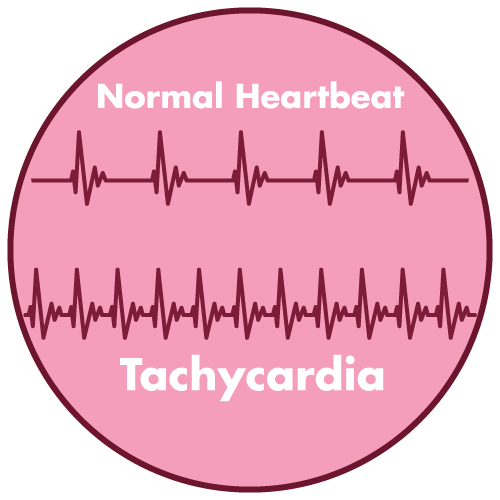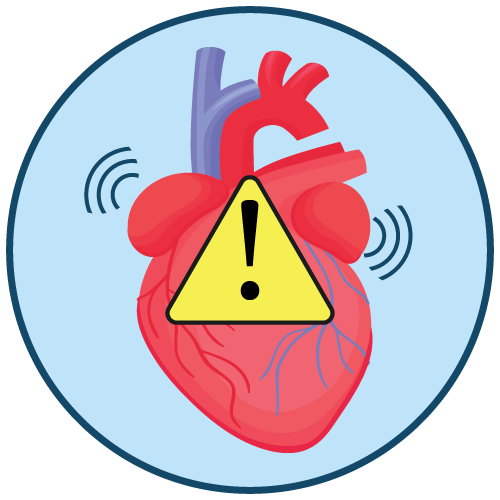| Name | Dobutamine |
| Classes |
Cardiovascular Agent Diagnostic Agent Radiologic Agent Beta-Adrenoceptor Blocker Antihypotensive |
| Diseases |
Cardiovascular Disease Heart Failure |
Dobutamine
Dobutamine is a synthetic catecholamine and belongs to the class of drugs known as beta-adrenergic agonists. Dobutamine primarily stimulates beta-1 adrenergic receptors, leading to an increase in myocardial contractility. It also has mild beta-2 and alpha-1 adrenergic receptor activity. The overall effect is increased cardiac output without significantly increasing heart rate.
Dobutamine is indicated for the short-term treatment of adults with cardiac decompensation due to depressed contractility resulting either from organic heart disease or from cardiac surgical procedures.
Dobutamine in 5% Dextrose Injection, USP is introduced intravenously via an appropriate intravenous catheter or needle. It is advisable to employ a calibrated electronic infusion device to regulate the flow rate in mL/hour or drops/minute. The infusion of dobutamine should commence at a conservative rate (0.5 to 1.0 µg/kg/min) and be adjusted at short intervals, guided by the patient's response. This evaluation includes considerations such as systemic blood pressure, urine output, frequency of ectopic activity, heart rate, and, whenever feasible, assessments of cardiac output, central venous pressure, and/or pulmonary capillary wedge pressure. The optimal infusion rates have demonstrated variability among patients in reported trials, typically ranging from 2 to 20 µg/kg/min, occasionally slightly exceeding this range. In exceptional cases, infusion rates as high as 40 µg/kg/min have been necessary to achieve the desired effect.
Adverse reactions associated with dobutamine may include:
- Increased heart rate
- Increased blood pressure
- Ectopic beats
- Headache
- Palpitations
While administering dobutamine, as with any adrenergic agent, continuous monitoring of ECG and blood pressure is recommended. Additionally, whenever feasible, monitoring of pulmonary wedge pressure and cardiac output should be undertaken to enhance the safe and effective infusion of Dobutamine in 5% Dextrose Injection, USP.
- Increase in Heart Rate or Blood Pressure: Dobutamine hydrochloride has the potential to induce a substantial elevation in heart rate or blood pressure, particularly systolic pressure. In clinical studies, approximately 10% of adult patients experienced rate increases of 30 beats/minute or more, and around 7.5% exhibited a systolic pressure increase of 50 mm Hg or greater. Typically, these effects can be reversed by reducing the dosage. As dobutamine facilitates atrioventricular conduction, individuals with atrial fibrillation are at risk of developing a rapid ventricular response. In cases where patients have atrial fibrillation with rapid ventricular response, the administration of a digitalis preparation is recommended before initiating dobutamine therapy. Patients with pre-existing hypertension seem to have an elevated risk of experiencing an exaggerated pressure response.
- Ectopic Activity: While dobutamine may precipitate or worsen ventricular ectopic activity, instances of inducing ventricular tachycardia are rare.
- Usage Following Acute Myocardial Infarction: Insufficient clinical experience with dobutamine in the context of myocardial infarction exists to establish the drug's safety for this specific use. There is a concern that any agent enhancing contractile force and heart rate might potentially increase the size of an infarction by intensifying ischemia, although it remains unknown whether dobutamine has such an effect.
Contraindication
Dobutamine is contraindicated in patients with hypersensitivity to dobutamine or any of its components.
None known.
Dobutamine is contraindicated in patients with idiopathic hypertrophic subaortic stenosis.
 Bangla
Bangla English
English


